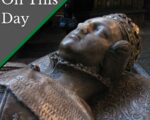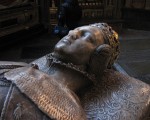
On this day in Tudor history, 16th July 1517, the feast of St Francis, Frances Brandon was born at Hatfield. She was the eldest daughter of Charles Brandon, Duke of Suffolk, and Mary Tudor, widow of King Louis XII of France and sister of Henry VIII.
Frances married Henry Grey, Marquis of Dorset (later Duke of Suffolk). They had three children: Jane, Katherine, and Mary.
[Read More...]



